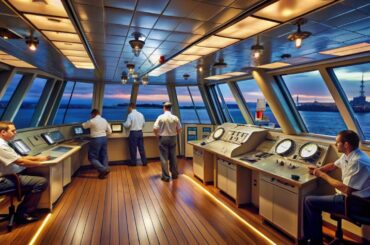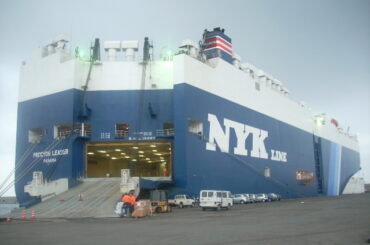As you stand on the deck of a ship, you might have wondered, who exactly is an Able Seaman? This vital crew member plays a pivotal role in ensuring the vessel’s safety and smooth operation. But what qualifications and skills set them apart from other sailors? Understanding the responsibilities and expertise of an Able Seaman reveals a world of maritime professionalism that goes beyond mere job titles. Stay tuned to uncover the essential role ABs play in maritime operations and the seas they navigate.
Role of an Able Seaman
In the intricate ecosystem of a ship’s crew, the role of an Able Seaman is essential for the smooth operation and navigation of the vessel. As an Able Seaman, you play an important part in maintaining the crew dynamics by working closely with other team members to guarantee the safety and efficiency of maritime operations. Your responsibilities include standing watch, steering the ship, handling lines, and performing routine maintenance tasks.
Able Seamen are critical components of a ship’s safety protocols. Your keen attention to detail and adherence to safety procedures are paramount in preventing accidents and safeguarding the well-being of everyone on board.
Qualifications and Certifications
To qualify as an Able Seaman on a ship, individuals must possess specific certifications and meet certain qualifications that demonstrate their competency and readiness for the role. The certification process for becoming an Able Seaman typically includes completing training programs approved by maritime authorities. These programs cover a wide range of topics such as navigation, safety procedures, ship maintenance, and emergency response protocols.
Additionally, educational requirements often involve obtaining a Merchant Mariner’s Credential (MMC) issued by the U.S. Coast Guard or an equivalent certification from other maritime governing bodies.
In terms of qualifications, aspiring Able Seamen need to have a high school diploma or its equivalent. Some positions may require further education or specialized training in areas like seamanship, marine engineering, or maritime studies.
Practical experience at sea is also essential, often gained through apprenticeships or working in entry-level maritime roles. By meeting these certification and educational requirements, individuals can demonstrate their preparedness to undertake the responsibilities of an Able Seaman on board a ship.
Responsibilities on Board
With a myriad of essential tasks to oversee and execute, the role of an Able Seaman on board a ship is critical to the smooth operation and safety of the vessel.
Watchkeeping duties are an important aspect of an Able Seaman’s responsibilities. This involves monitoring the ship’s surroundings, maintaining a lookout for other vessels or hazards, and ensuring compliance with navigation rules and regulations to prevent collisions at sea.
Additionally, line handling is another fundamental responsibility of an Able Seaman. This includes securing the ship to the dock using ropes, handling mooring lines during docking and undocking procedures, and assisting with the safe passage of the vessel through locks or narrow waterways.
Proper line handling is necessary for maintaining the ship’s stability and preventing accidents while berthing or unberthing.
Essential Skills and Training
Possessing a diverse set of essential skills and undergoing rigorous training are paramount for individuals aspiring to serve as an Able Seaman.
Navigational skills are vital for an Able Seaman, as they’re responsible for assisting in the navigation of the vessel. Understanding how to read nautical charts, use navigational instruments, and plot courses are essential components of their role.
Additionally, familiarity with safety procedures is imperative to guarantee the well-being of the crew and the ship. Able Seamen must be well-versed in emergency protocols, including fire drills, man overboard procedures, and abandon ship routines.
Rigorous training is necessary to prepare individuals for the challenges they may face at sea. This training often includes classroom instruction, hands-on simulations, and on-the-job experience.
Importance in Maritime Operations
Able Seamen play a pivotal role in guaranteeing the smooth operation and safety of maritime vessels. Responsible for various tasks, their importance in maritime operations can’t be overstated. One significant aspect of their role is navigation safety. Able Seamen are integral in steering the vessel, assisting with maneuvers, and making sure that the ship follows the intended course. Their vigilance and attention to detail help prevent accidents and secure the safe passage of the vessel.
Moreover, teamwork dynamics are essential in maritime operations, and Able Seamen are key players in fostering effective teamwork aboard the ship. They work closely with other crew members, including officers and engineers, to coordinate tasks, respond to emergencies, and maintain the vessel’s operational efficiency.
Frequently Asked Questions
What Are the Typical Working Hours for an Able Seaman?
In the maritime industry, the typical working hours for an able seaman revolve around shift patterns and watch duties. You’ll find yourself working in rotations, often following a schedule that includes night shifts and weekends.
Do Able Seamen Have to Deal With Sea Sickness?
When working at sea, dealing with sea sickness can be challenging. However, able seamen have various sea sickness remedies and coping strategies at their disposal, such as taking medication, staying hydrated, and focusing on the horizon.
Can Able Seamen Pursue Further Career Advancement?
Yes, as an able seaman, you can pursue further career advancement through various career pathways and certification opportunities. These can include advancing to higher ranks like chief mate or captain, specializing in specific skills, or shifting to onshore roles.
Is Prior Military Experience Required to Become an Able Seaman?
Prior military experience is not a strict requirement to become an able seaman. However, such training can offer valuable skills that align with job qualifications. While beneficial, it is not a mandatory prerequisite for entering this maritime profession.
Are There Age Restrictions for Becoming an Able Seaman?
To become an able seaman, age requirements vary by country. Some nations set a minimum age of 18 for training programs, while others may have higher age limits. Verify specific regulations with maritime authorities before pursuing this career path.







